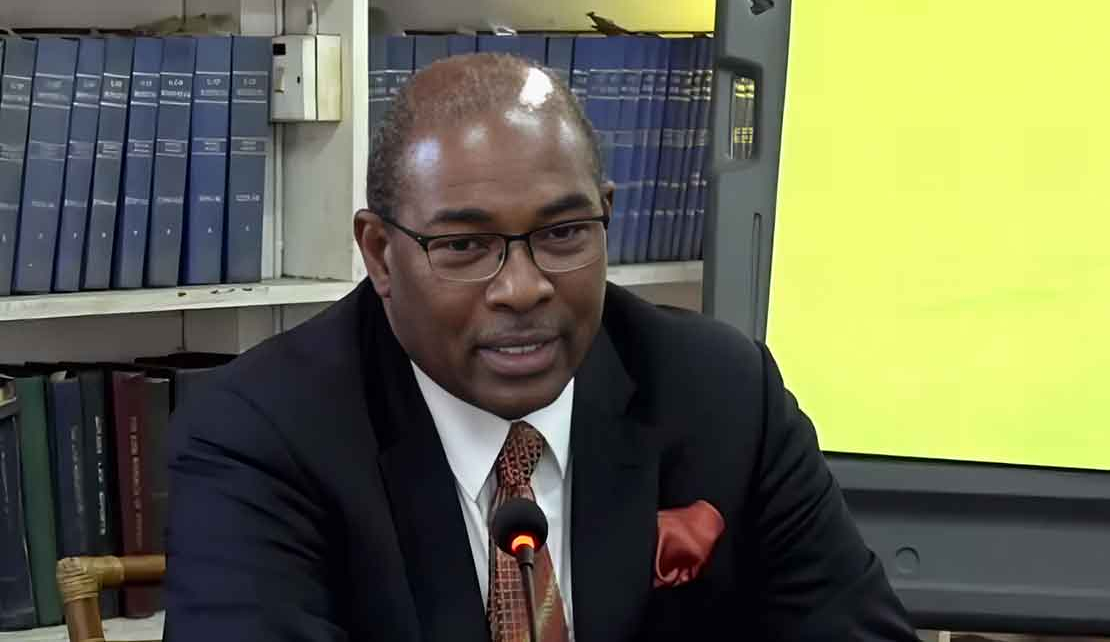GUYANA | Gov't to cease use of terms “Negro”, “East Indian” by police, health sector; lists new descriptors

GEORGETOWN, Guyana, June 7, 2024 - The Government of Guyana has has ceased the use of the terms “Negro” and “East Indian” in official records of the police and health sectors.
 This comes in the wake of a public firestorm about the use of “negro” to describe the detention of a political activist for cybercrime offences ad a subsequent letter by his attorney Nigel Hughes to Guyana’s Ethnic Relations Commission (ERC) following his recommending that the Guyana Police Force (GPF) cease describing African descendants as “negro” in their official documents.
This comes in the wake of a public firestorm about the use of “negro” to describe the detention of a political activist for cybercrime offences ad a subsequent letter by his attorney Nigel Hughes to Guyana’s Ethnic Relations Commission (ERC) following his recommending that the Guyana Police Force (GPF) cease describing African descendants as “negro” in their official documents.
“Recognizing that many Guyanese find the terms “negro” and “east Indian” offensive, the Cabinet decided on June 6, 2024, that the terms used by the Guyana Police Force including immigration, and the health sector as forms of identification and epidemiological references to ethnic descriptions will now read as follows Guyanese of African descent, Guyanese of Indian descent” the Ministry of Parliamentary Affairs and Governance said in a statement.
According to the government “recognizing that many Guyanese find the terms “negro” and “east Indian” offensive, the Cabinet decided on June 6, 2024, that the terms used by the Guyana Police Force including Immigration, and the health sector as forms of identification and epidemiological references to ethnic descriptions” will be discontinued.
The following is the full text of the Guyana Government’s statement:
Cabinet Decides on Changes to Police Identification and Health Epidemiological Terminology
Despite being in government from 1966 to 1992 and again from 2015 to 2020, the People’s National Congress and the PNCR-led APNU+AFC Coalition, along with their advocate Mr. Nigel Hughes, failed to address the issue of outdated Police ethnic identification categories, such as “negro,” which was inherited from British colonial times. These terms, while not enshrined in law, have been used as an identification tool since the colonial era and after independence.
The arrest of Kidacke Amsterdam on cybercrime charges prompted Mr. Hughes and the PNCRled Coalition to suddenly raise the issue of ethnic identification. Their long period of somnambulism was finally over, but this newfound urgency did not extend to condemning the caller who demanded the beheading of government leaders and displaying their heads on staves by the seawall—an image reminiscent of the barbaric practices of the colonial rulers.
Recognizing that many Guyanese find the terms “negro” and “east Indian” offensive, the Cabinet decided on June 6, 2024, that the terms used by the Guyana Police Force including Immigration, and the health sector as forms of identification and epidemiological references to ethnic descriptions will now read as follows:
- Guyanese of African descent
- Guyanese of Indian descent
- Guyanese Amerindian
- Guyanese of mixed ancestry
- Guyanese of Portuguese descent
- Guyanese of Chinese descent
The relevant entities are instructed to implement the Cabinet’s decision and update their operational manuals and rules accordingly.
Nigel Hughes had called on the ERC to issue a directive to the police force, advising that the law enforcement agency “cease the use of the term ‘Negro’ and any other derogatory language when referring to individuals of African descent. “This directive should be disseminated widely within the force to ensure compliance at all levels,” he said.
Hughes’ appeal to the ERC’s Chief Executive Officer, Ms. Gomin Camacho, came less than a week after his client, Working People’s Alliance (WPA) executive member Kidackie Amsterdam, complained that the police force’s description of him as a “negro” was met with strong objection and eventually the police changed it.
In his letter, Hughes emphasized that the term “negro” had its roots in colonialism and slavery, where it was used to dehumanize and subjugate people of African descent. “Its usage today is not only outdated but also perpetuates a legacy of racism and exclusion”.
-30-

 En
En  Ar
Ar